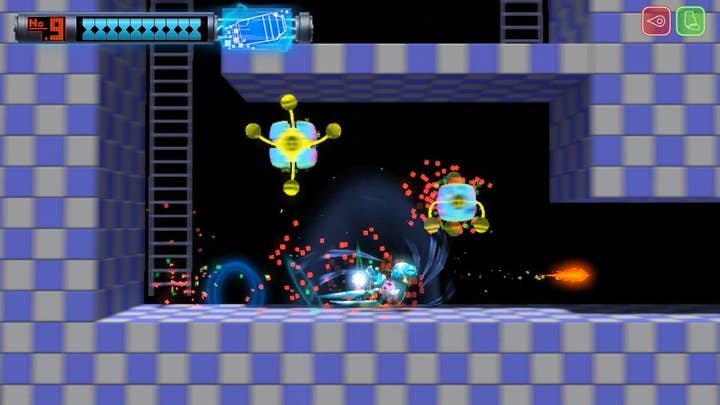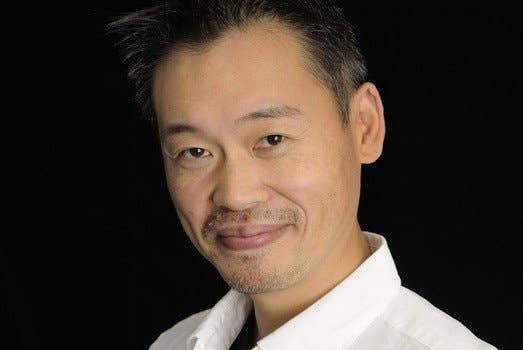Keiji Inafune: From Capcom to Kickstarter
The legendary developer on raising $3.8m through Kickstarter, and what that means for Mighty No. 9
Ever since the early days of the Kickstarter boom, there has been a lingering doubt over how long the good times could possibly last. As the multimillion dollar campaigns began to stack up - from Double Fine, from inXile, from Ouya - it didn't take long for the discussion around crowdfunding to be tainted by pessimism. Crowdfunding seemed like a utopian ideal for game development, but many believed that even one high-profile failure could upset the delicate relationship between creator and player on which the idea rested, poisoning the well for everybody.
As always, the reality is less dramatic. More than two years after Double Fine raised $3.3 million the potential of crowdfunding no longer seems quite so limitless, and it wasn't down to a public implosion or messy class-action lawsuit. Kickstarter and other similar platforms simply became more crowded, the interest of the press began to wane, and the huge success stories slowed from a torrent to a trickle. By April this year, even a venerable figure like Julian Gollop struggled to hit the relatively small target of $180,000. In less than a year, he told Gamesindustry.biz, crowdfunding had become an order of magnitude more difficult.
"My experience from Capcom has really helped me. The way I allocate all of that money is based on the lessons I've learned in my career"
A notable exception is Capcom veteran Keiji Inafune who, with his independent studio Comcept Inc., raised more than $3.8 million through Kickstarter in late 2013. Just as crowdfunding had started to look less like a phenomenon and more like just one more problematic way of raising development funds, Comcept's Mighty No. 9 was a surprising reminder that the big money was still out there for the right project.
"There were so many new things about our project," Infaune says when we meet at Barcelona's Gamelab conference. "It was one of the first Kickstarter projects started by a famous Japanese game developer, and it was also a console project. Most Kickstarter projects had been for PC games, but Mighty No. 9 was one of the first to make the claim that it would be a big title for console."
It is refreshing to see Inafune's immediate recognition of the role his public standing played in finding success through Kickstarter. As promising as Mighty No. 9 is, Infaune is under no illusion that it would have raised so much money without the lure of his celebrity, though he insists that it will benefit from the years of experience on which his fame is built. After all, one of the main fears around crowdfunding is the developer's ability to use money wisely and effectively - a significant factor in the reaction to Double Fine's decision to split Broken Age into two parts. With Inafune, formerly Capcom's global head of production, there is no logical basis for such concerns.

"My experience from Capcom has really helped me," he admits. "With Mighty No. 9 we're working with another developer, and how I spend the money I collected with that developer, or how I spend it on promotion or other external resources - the way I allocate all of that money is based on the lessons I've learned in my career.
"The only difficulty I've been facing is, as we make the game, we're constantly talking to the backers and we get new feedback every day. We try our best to incorporate the ideas, but sometimes that feedback goes beyond what I expected. In that case, it can be difficult to explain that, while the feedback is appreciated, certain ideas would require us to ask for extra budget. That's a difficulty, because I never experienced that at Capcom."
"It can be difficult to explain to our backers that certain ideas would require us to ask for extra budget"
Indeed, it's clear that Inafune is energised by the new balance between creative freedom and public exposure that crowdfunding affords. At Capcom, though he had numerous mega-budget blockbusters under his control, he was always removed from the people who actually played them. There were rituals, like focus tests, that gave the impression of direct contact with the gamer, but in reality there was no way of knowing if any given decision would resonate with the people that actually bought the finished product.
With Mighty No. 9, however, the entire creative process can be a collaboration with the target audience, and Infaune waves away my concerns that so many opinions, however well intentioned, could end up diluting Comcept's vision. If anything, he says, it makes the original vision better.
"The feedback is so much more accurate and precise. It's a big advantage of using Kickstarter," he says. "I have a little bit of concern about spoiling the backers' fun [by involving them too much], but Mighty No. 9 is a side-scrolling action game, so you can really expect what sort of gameplay it's going to be.
"It's not even like Call of Duty, which has story twists and surprises. If you reveal those elements you're going to spoil the fun, but with Mighty No. 9 the fun and the surprise comes from the feel of the gameplay, and how the control is implemented. You only understand that when you finally play the game. Giving information to the player doesn't spoil that kind of fun. They need to try it. They need to taste it."









